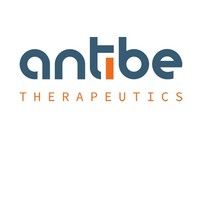Request Demo
Last update 03 Jan 2026
ATB-346
Last update 03 Jan 2026
Overview
Basic Info
Drug Type Small molecule drug |
Synonyms Otenaproxesul, ATB-346 |
Target |
Action inhibitors, stimulants |
Mechanism COX-2 inhibitors(Cyclooxygenase-2 inhibitors), Apoptosis stimulants |
Therapeutic Areas |
Active Indication- |
Inactive Indication |
Originator Organization |
Active Organization- |
Inactive Organization |
License Organization |
Drug Highest PhasePendingPhase 2 |
First Approval Date- |
Regulation- |
Login to view timeline
Structure/Sequence
Molecular FormulaC21H19NO3S |
InChIKeyYCNMAPLPQYQJFC-ZDUSSCGKSA-N |
CAS Registry1000700-29-7 |
Related
2
Clinical Trials associated with ATB-346NCT03978208
A Double-Blind, Placebo-Controlled, Phase 2B Study to Assess the Efficacy and Safety of a 14-Day Dosing Regimen of 3 Doses of ATB-346 Versus Placebo, Orally Administered Once Daily to Patients Diagnosed With Osteoarthritis of the Knee
The primary objective of this study is to evaluate the efficacy of a 14-day dosing regimen of ATB-346 at doses of 150 mg, 200 mg and 250 mg compared to placebo in reducing osteoarthritis knee pain as measured by changes in the post-treatment WOMAC subscale pain score relative to each patient's pretreatment baseline WOMAC assessment.Safety will be assessed via measurements of vital signs and clinical laboratory tests at baseline and at various time points during the study, patient monitoring, and by the documentation of adverse events.
Start Date29 Mar 2019 |
Sponsor / Collaborator |
NCT03220633
A Double-Blind, Placebo-Controlled, Phase I Study To Assess Safety, Tolerability And Pharmacokinetics Of Single/Multiple Ascending Doses Of ATB-346 Orally Administrated In Healthy Male And Female Subjects
A double-blind, placebo-controlled, phase I study to assess safety, tolerability and pharmacokinetics of single/multiple ascending doses of atb-346 orally administered in healthy male and female subjects.
Start Date01 Jun 2014 |
Sponsor / Collaborator |
100 Clinical Results associated with ATB-346
Login to view more data
100 Translational Medicine associated with ATB-346
Login to view more data
100 Patents (Medical) associated with ATB-346
Login to view more data
23
Literatures (Medical) associated with ATB-34601 Apr 2025·Advanced Science
SENP3 Drives Abdominal Aortic Aneurysm Development by Regulating Ferroptosis via De‐SUMOylation of CTH
Article
Author: Shao, Qin ; Cai, Zhaohua ; Liang, Feng ; Jiang, Yangjing ; Liang, Min ; Zhou, Guo ; Huo, Huanhuan ; Xiao, Qingqing ; Xiao, Danrui ; He, Ben ; Zhuang, Fei ; Chen, Long ; Shi, Yiping ; Fang, Liang ; Wang, Xia ; Huang, Yijie
Abstract:
Abdominal aortic aneurysm (AAA) is a high‐risk inflammatory disorder. SENP3, a SUMO2/3‐specific protease, is closely involved in the development of cancer. In this study, the aim is to explore the role of SENP3 in macrophages in AAA. It is found that the protein expression of SENP3 is significantly upregulated in both human and murine AAA specimens. SENP3 expression is negatively regulated by the E3 ubiquitin ligase STUB1/CHIP. Furthermore, myeloid‐specific SENP3 knockout inhibited AAA formation in both AngII‐ and CaCl2‐induced mouse models. SENP3 deficiency repressed AAA lesion macrophage infiltration and inflammatory response. Mechanistic studies identified Cystathionine Gamma–Lyase (CTH), a critical enzyme involved in hydrogen sulfide production, as a target protein of SENP3 that mediated the exacerbating effects of SENP3 on ferroptosis and inflammatory programs in macrophages. SUMO‐3 modification at Lysine 361 promoted CTH protein stability, whereas de‐SUMOylation by SENP3 facilitated its proteasome‐dependent degradation. Most importantly, it is found that CTH inhibitor counteracted the protective effect of SENP3 deficiency on AAA. Additionally, supplementation with ATB346, a novel H2S‐donating naproxen derivative, prevented AAA development in mice. These studies suggest that SENP3‐mediated CTH deSUMOylation regulates macrophage ferroptosis and AAA development. The SENP3/CTH axis is therefore an important therapeutic target for aortic aneurysmal diseases.
01 Feb 2025·Pharmacological Reports
A hydrogen sulphide-releasing non-steroidal anti-inflammatory, ATB-346, significantly attenuates human myometrial contractions
Article
Author: Mijušković, Ana ; Arrowsmith, Sarah ; Wray, Susan
Abstract:
Background:
Spontaneous preterm birth is the leading cause of perinatal morbidity and mortality. Tocolytics are drugs used to inhibit uterine contractions in cases of imminent preterm birth, however, few are effective in stopping labour once initiated and all have side effects. Combination approaches involving drugs that target multiple signalling pathways that regulate contractions may increase efficacy, reduce dosage and improve tolerability. Both non-steroidal anti-inflammatory drugs (NSAIDs) and hydrogen sulphide (H2S)-releasing compounds can reduce myometrial contractions. In a novel approach we evaluated the tocolytic properties of ATB-346–a H2S-releasing derivative of the NSAID naproxen, shown clinically to reduce pain and inflammation in arthritis.
Methods:
Using organ baths, paired strips of human myometrium were exposed to increasing concentrations of ATB-346, or equimolar concentrations (10µM and 30µM) of the parent drug, naproxen, or the H2S-releasing moiety, 4-hydroxy-thiobenzamide (TBZ), alone. The ability of ATB-346 versus the individual components of ATB-346 to decrease ex vivo spontaneous contractions was investigated, and the potency was compared to a known H2S donor, Na2S.
Results:
Acute application of Na2S produced a concentration-dependent decrease in force amplitude and force integral (area under the curve) of contraction. ATB-346 produced a more profound decrease in contraction compared to equimolar concentrations of naproxen or TZB alone and was more potent than the equivalent concentration of Na2S.
Conclusions:
ATB-346 exhibits potent tocolytic properties in human myometrium. These exciting results call for further exploration of ATB-346, with a view to repurposing this or similar drugs as novel therapies for delaying preterm labour.
19 Dec 2022·Angewandte Chemie (International ed. in English)
Nickel‐Catalyzed Enantioconvergent Carboxylation Enabled by a Chiral 2,2′‐Bipyridine Ligand
Article
Author: Perveen, Saima ; Zhang, Shuai ; Ouyang, Yizhao ; Li, Tao ; Li, Pengfei ; Wang, Xicheng ; Wang, Linghua
Abstract:
In contrast to previous approaches to chiral α‐aryl carboxylic acids that based on reactions using hazardous gases, pressurized setup and mostly noble metal catalysts, in this work, a nickel‐catalyzed general, efficient and highly enantioselective carboxylation reaction of racemic benzylic (pseudo)halides under mild conditions using atmospheric CO2has been developed. A unique chiral 2,2′‐bipyridine ligand named Me‐SBpy featuring compact polycyclic skeleton enabled both high reactivity and stereoselectivity. The utility of this method has been demonstrated by synthesis of various chiral α‐aryl carboxylic acids (30 examples, up to 95 % yield and 99 : 1 er), including profen family anti‐inflammatory drugs and transformations using the acids as key intermediates. Based on mechanistic experimental results, a plausible catalytic cycle involving Ni‐complex/radical equilibrium and Lewis acid‐assisted CO2activation has been proposed.
33
News (Medical) associated with ATB-34619 Apr 2024
TORONTO--(BUSINESS WIRE)-- Antibe Therapeutics Inc. (“Antibe” or the “Company”) (TSX: ATE) announced that the Company sought an extension of its previously announced stay of proceedings (“Stay”) under the Companies’ Creditors Arrangement Act (the “CCAA”) at a hearing before the Ontario Superior Court of Justice (Commercial List) (the “Court”) on April 18, 2024.
The Court has reserved its decision and extended the Stay pending release of the decision. The Company is requesting to extend the Stay until May 24, 2024 in order to be able to continue engaging with the U.S. Food and Drug Administration with respect to the previously announced hold on the Company’s planned Phase II trial and to determine appropriate next steps.
About Antibe Therapeutics Inc.
Antibe is a clinical-stage biotechnology company leveraging its proprietary hydrogen sulfide platform to develop next-generation therapies to target pain and inflammation arising from a wide range of medical conditions. The Company’s current pipeline includes assets that seek to overcome the gastrointestinal ulcers and bleeding associated with nonsteroidal anti-inflammatory drugs (“NSAIDs”). Antibe’s lead drug, otenaproxesul, is intended as a safer alternative to opioids and today’s NSAIDs for acute pain. Antibe’s second pipeline drug, ATB-352, is being developed for a specialized pain indication. The Company’s next target is inflammatory bowel disease (“IBD”), a condition long in need of safer, more effective therapies. Learn more at antibethera.com.
Forward Looking Statements
This news release includes certain forward-looking statements under applicable securities laws, which may include, but are not limited to, statements concerning the extension of the Stay, payment of amounts due to Nuance under the arbitral award, anticipated engagement with the U.S. Food and Drug Administration concerning the clinical hold on otenaproxesul. Any statements contained herein that are not statements of historical facts may be deemed to be forward-looking, including those identified by the expressions “will”, “anticipate”, “believe”, “plan”, “estimate”, “expect”, “intend”, “propose” and similar wording. Forward-looking statements involve known and unknown risks and uncertainties that could cause actual results, performance, or achievements to differ materially from those expressed or implied in this news release. Factors that could cause actual results to differ materially from those anticipated in this news release include, but are not limited to, the decision of the Court with respect to the extension of the Stay and any subsequent determinations made by the Court, the Company’s inability to timely execute on its business strategy and timely and successfully complete its clinical trials and studies, the Company’s inability to obtain the necessary regulatory approvals related to its activities, risks associated with drug development generally and those risk factors set forth in the Company’s public filings made in Canada and available on sedarplus.com. The Company assumes no obligation to update the forward-looking statements or to update the reasons why actual results could differ from those reflected in the forward-looking statements except as required by applicable law.
Phase 2
16 Apr 2024
TORONTO--(BUSINESS WIRE)-- Antibe Therapeutics Inc. (“Antibe” or the “Company”) (TSX: ATE) announced that the Toronto Stock Exchange (“TSX”) is reviewing the eligibility for continued listing on the TSX of the securities of the Company. The TSX has identified the Company’s financial condition as a criterion for delisting applicable to the Company.
Antibe has been invited to make submissions to TSX and a hearing has been scheduled for the afternoon of April 23, 2024. Further updates will be provided as appropriate.
The Company also confirms that it is no longer quoted on the OTCQX.
About Antibe Therapeutics Inc.
Antibe is a clinical-stage biotechnology company leveraging its proprietary hydrogen sulfide platform to develop next-generation therapies to target pain and inflammation arising from a wide range of medical conditions. The Company’s current pipeline includes assets that seek to overcome the gastrointestinal ulcers and bleeding associated with nonsteroidal anti-inflammatory drugs (“NSAIDs”). Antibe’s lead drug, otenaproxesul, is intended as a safer alternative to opioids and today’s NSAIDs for acute pain. Antibe’s second pipeline drug, ATB-352, is being developed for a specialized pain indication. The Company’s next target is inflammatory bowel disease (“IBD”), a condition long in need of safer, more effective therapies. Learn more at antibethera.com.
Forward Looking Statements
This news release includes certain forward-looking statements under applicable securities laws, which may include, but are not limited to, statements concerning the TSX delisting review. Any statements contained herein that are not statements of historical facts may be deemed to be forward-looking, including those identified by the expressions “will”, “anticipate”, “believe”, “plan”, “estimate”, “expect”, “intend”, “propose” and similar wording. Forward-looking statements involve known and unknown risks and uncertainties that could cause actual results, performance, or achievements to differ materially from those expressed or implied in this news release. Factors that could cause actual results to differ materially from those anticipated in this news release include, but are not limited to, the decision of the TSX with respect to the delisting , the Company’s inability to timely execute on its business strategy and timely and successfully complete its clinical trials and studies, the Company’s inability to obtain the necessary regulatory approvals related to its activities, risks associated with drug development generally and those risk factors set forth in the Company’s public filings made in Canada and available on sedarplus.com. The Company assumes no obligation to update the forward-looking statements or to update the reasons why actual results could differ from those reflected in the forward-looking statements except as required by applicable law.
View source version on businesswire.com:
Contacts
Antibe Therapeutics Inc.
Christina Cameron
VP Investor Relations
+1 416-577-1443
christina@antibethera.com
Source: Antibe Therapeutics Inc.
View this news release online at:
09 Apr 2024
TORONTO--(BUSINESS WIRE)-- Antibe Therapeutics Inc. (“Antibe” or the “Company”) (TSX: ATE, OTCQX: ATBPF) announced that it intends to application today with the Ontario Superior Court of Justice (Commercial List) (the "Court") for an Initial Order under the Companies' Creditors Arrangement Act (the "CCAA").
The application seeks an order that would, amongst other things, stay any action by Nuance Pharma to enforce the previously announced confidential ruling from the Singapore International Arbitration Centre requiring Antibe to pay approximately US$24 million to Nuance and would also enable the Company to continue engaging with the U.S. Food and Drug Administration with respect to the previously announced hold on the Company’s planned Phase II trial.
In addition, the Company announced that Amal Khouri and Jennifer McNealey have resigned from its Board of Directors effective April 8, 2024. The Company thanks both Ms. Khouri and Ms. McNealey for their valuable contributions and wishes them well in their future endeavors.
Additional Information
Further updates will be provided as appropriate.
About Antibe Therapeutics Inc.
Antibe is a clinical-stage biotechnology company leveraging its proprietary hydrogen sulfide platform to develop next-generation therapies to target pain and inflammation arising from a wide range of medical conditions. The Company’s current pipeline includes assets that seek to overcome the gastrointestinal ulcers and bleeding associated with nonsteroidal anti-inflammatory drugs (“NSAIDs”). Antibe’s lead drug, otenaproxesul, is intended as a safer alternative to opioids and today’s NSAIDs for acute pain. Antibe’s second pipeline drug, ATB-352, is being developed for a specialized pain indication. The Company’s next target is inflammatory bowel disease (“IBD”), a condition long in need of safer, more effective therapies. Learn more at antibethera.com.
Forward Looking Statements
This news release includes certain forward-looking statements under applicable securities laws, which may include, but are not limited to, statements concerning the application to the Court and the proposed terms of the Initial Order, payment of amounts due to Nuance under the arbitral award, anticipated engagement with the U.S. Food and Drug Administration concerning the clinical hold on otenaproxesul. Any statements contained herein that are not statements of historical facts may be deemed to be forward-looking, including those identified by the expressions “will”, “anticipate”, “believe”, “plan”, “estimate”, “expect”, “intend”, “propose” and similar wording. Forward-looking statements involve known and unknown risks and uncertainties that could cause actual results, performance, or achievements to differ materially from those expressed or implied in this news release. Factors that could cause actual results to differ materially from those anticipated in this news release include, but are not limited to, the decision of the Court with respect to the Initial Order and any subsequent determinations made by the Court, the Company’s inability to timely execute on its business strategy and timely and successfully complete its clinical trials and studies, the Company’s inability to obtain the necessary regulatory approvals related to its activities, risks associated with drug development generally and those risk factors set forth in the Company’s public filings made in Canada and available on sedarplus.com. The Company assumes no obligation to update the forward-looking statements or to update the reasons why actual results could differ from those reflected in the forward-looking statements except as required by applicable law.
Phase 2Executive Change
100 Deals associated with ATB-346
Login to view more data
R&D Status
10 top R&D records. to view more data
Login
| Indication | Highest Phase | Country/Location | Organization | Date |
|---|---|---|---|---|
| Osteoarthritis, Knee | Phase 2 | Canada | 29 Mar 2019 | |
| Stomach Ulcer | Phase 2 | Canada | 08 Sep 2017 | |
| Musculoskeletal Pain | Phase 2 | Canada | 09 Mar 2016 | |
| Chronic Pain | Phase 1 | Canada | 01 Jun 2014 | |
| Intestinal Neoplasms | Preclinical | Canada | - | - |
| Melanoma | Preclinical | Italy | - | |
| Periodontal Diseases | Preclinical | Canada | - |
Login to view more data
Clinical Result
Clinical Result
Indication
Phase
Evaluation
View All Results
| Study | Phase | Population | Analyzed Enrollment | Group | Results | Evaluation | Publication Date |
|---|
No Data | |||||||
Login to view more data
Translational Medicine
Boost your research with our translational medicine data.
login
or

Deal
Boost your decision using our deal data.
login
or

Core Patent
Boost your research with our Core Patent data.
login
or

Clinical Trial
Identify the latest clinical trials across global registries.
login
or

Approval
Accelerate your research with the latest regulatory approval information.
login
or

Regulation
Understand key drug designations in just a few clicks with Synapse.
login
or

AI Agents Built for Biopharma Breakthroughs
Accelerate discovery. Empower decisions. Transform outcomes.
Get started for free today!
Accelerate Strategic R&D decision making with Synapse, PatSnap’s AI-powered Connected Innovation Intelligence Platform Built for Life Sciences Professionals.
Start your data trial now!
Synapse data is also accessible to external entities via APIs or data packages. Empower better decisions with the latest in pharmaceutical intelligence.
Bio
Bio Sequences Search & Analysis
Sign up for free
Chemical
Chemical Structures Search & Analysis
Sign up for free



